(MENAFN- Daily News Egypt) At the 12th World Urban Forum (WUF12), held in Cairo, two pivotal discussions underscored the critical importance of Sustainable Development Goals (SDGs) localisation and financing for development. These discussions revealed a collective commitment to addressing the global challenges of urbanization and sustainable development through enhanced collaboration among various stakeholders. This article delves deeper into these discussions, highlighting key insights, initiatives, and the way forward for the UN and its partners.
ONE UN Roundtable: Bridging Financing Gaps for SDG Acceleration
The“ONE UN Roundtable” served as a key platform for the United Nations Development System (UNDS) to strengthen partnerships with multilateral development partners. During this roundtable, participants focused on bridging financing gaps in national SDG acceleration plans through enhanced collaboration between the UN System, Resident Coordinators, and multilateral development banks.
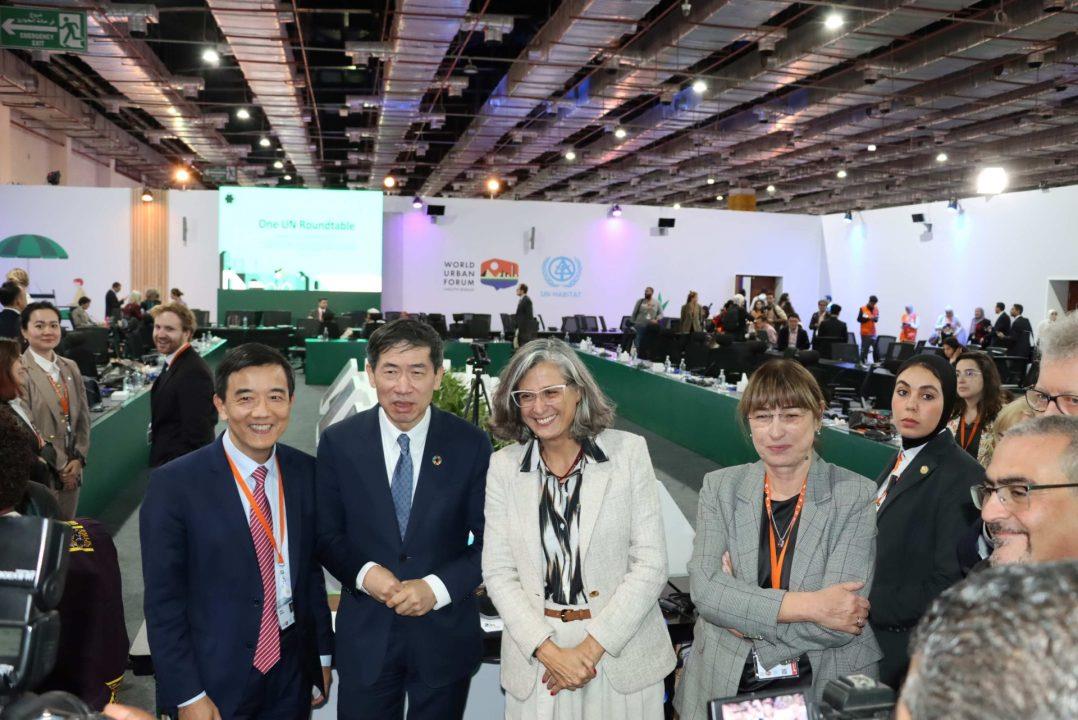
The Urgency of Financial Investment
UN-Habitat Executive Director Anacláudia Rossbach emphasized the urgent need for increased financial investments to support the New Urban Agenda. She stated:“Addressing the global housing crisis is a high priority.” This remark resonates deeply in a world where urbanization is rapidly increasing, and the demand for affordable housing is greater than ever. Rossbach highlighted that sustainable investments depend heavily on well-planned urban development, which must be inclusive and resilient.
Addressing the Gap Between Ambition and Reality
Elena Panova, the UN Resident Coordinator in Egypt, noted the strong commitment from participants to build inclusive, resilient, and financially sustainable urban spaces. She acknowledged the“gap between ambition and reality,” a divide often rooted in financing challenges. This gap presents a significant hurdle for many countries striving to meet their SDG commitments. Panova emphasized the importance of supporting local actors in advancing sustainable development on the ground, pointing out that local initiatives often have a direct impact on the lives of citizens.
Collective Efforts and International Cooperation
The roundtable included voices from UN Resident Coordinators in Turkiye, Nepal, Senegal, and Mexico, all echoing the need to leverage private and public resources to accelerate SDG implementation. They highlighted the importance of providing the necessary technical assistance to local governments, ensuring that they have the tools and resources needed to effectively implement their SDG initiatives.
Since its establishment at WUF10 in 2020, the roundtable has brought together UN entities, Resident Coordinators, multilateral development banks, and national government representatives. The goal has been to enhance the UN's alignment with local and national priorities, recognizing that effective SDG implementation requires a tailored approach that considers the unique contexts of various countries and regions.
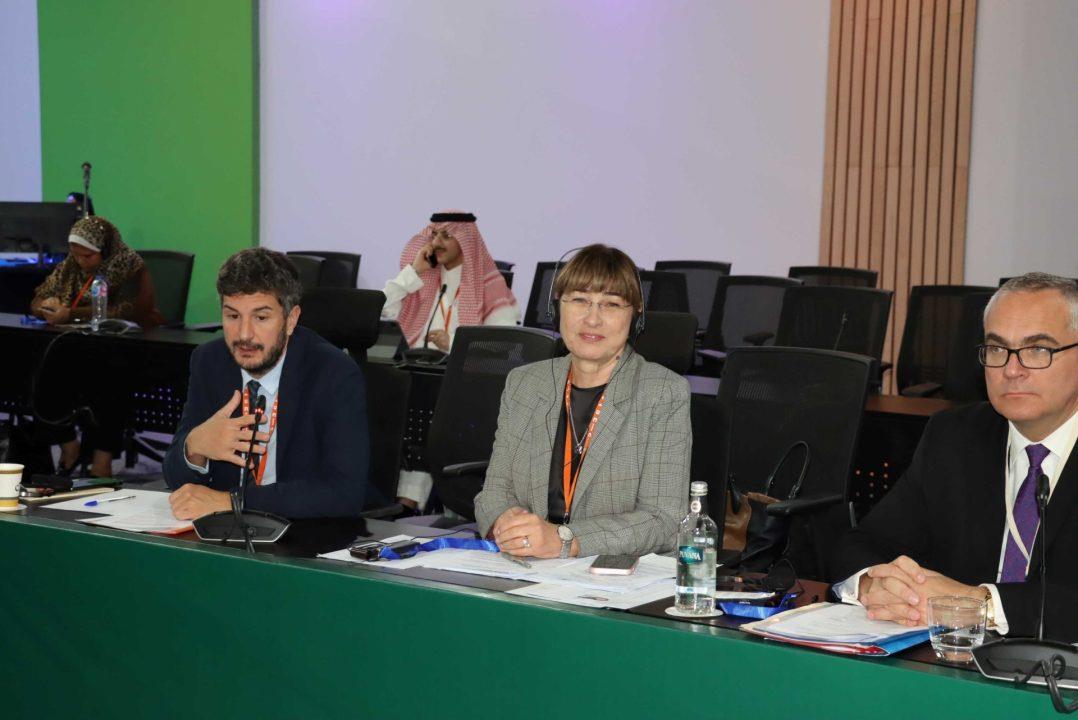
The Financing Challenge
In a world where more than 80% of Sustainable Development Goals are currently off-track, the WUF12's“ONE UN Roundtable” aimed to develop forward-looking strategies to support the UN's integrated efforts toward SDG acceleration. Participants discussed best practices from previous UN meetings, the High-Level Political Forum (HLPF) Ministerial Declaration, and recommendations from the Summit of the Future.
A significant part of the discussion centred around the critical annual financing gap of $2.5trn-4trn for SDG implementation, as highlighted by the UN and development partners. This gap poses a daunting challenge for countries striving to achieve their SDG targets, particularly in the context of rising global inequalities and economic instability.
Enhancing Partnerships for Sustainable Financing
A key priority for the“ONE UN” platform at WUF12 is enhancing partnerships with multilateral development banks to strengthen SDG financing, specifically for Least Developed Countries (LDCs), Landlocked Developing Countries (LLDCs), and Small Island Developing States (SIDS). These regions face unique challenges that necessitate tailored solutions and localized financing strategies.
Discussions focused on improving coordination between UNDS and other financial institutions to create a collaborative framework for bridging financial gaps in SDG implementation. Participants recognized that effective financing for development requires not just additional funding but also innovative approaches to resource allocation and investment.
Expected Outcomes and Future Directions
Expected outcomes from the roundtable included a quantitative set of recommendations to strengthen collaboration on SDG financing and the qualitative identification of mechanisms to establish strategic partnerships between the UN and financial institutions. These insights will prove invaluable in informing discussions at future global events, including the Fourth International Conference on Financing for Development in 2025.
As the global community prepares for this critical event, it is essential to address the financial and operational challenges of the SDG agenda. The discussions at WUF12 highlighted the need for a collective effort to mobilize resources and enhance collaboration across sectors, ensuring that no one is left behind in the pursuit of sustainable development.
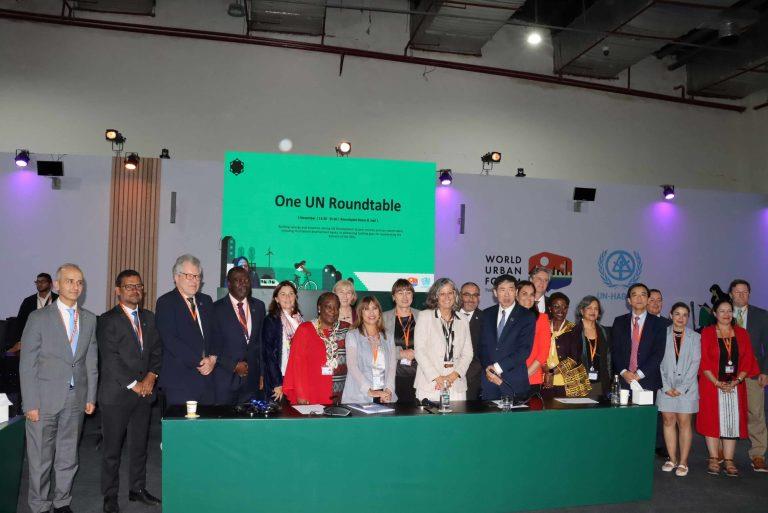
Egypt's Initiatives for SDG Localization
In parallel to the roundtable discussions, the UN Resident Coordinator in Egypt, Elena Panova, highlighted several initiatives launched by the Egyptian government to support efforts to localize the SDGs. Her remarks came during a session titled“Boosting the Localization of the Sustainable Development Goals to Propel Transformative Change,” co-organized by the United Nations Joint SDG Fund and the Local2030 Coalition.
The Role of the Joint SDG Fund
Panova commended the“clear impact” of the Joint SDG Fund on the UN's work in Egypt. She explained that the Fund has significantly strengthened UN cooperation at the national level, enabling coordinated approaches among UN agencies on key SDG areas. This collaborative effort has been critical in addressing the multifaceted challenges that Egypt faces in its journey toward achieving the SDGs.
Integrated National Financing Framework
Under the leadership of the Ministry of Planning, Economic Development and International Cooperation, the Egyptian government has partnered with five UN agencies to develop the building blocks for an Integrated National Financing Framework. This framework is designed to be a comprehensive financing strategy that serves as a roadmap to close financing gaps, enhance resource allocation to key sectors, unlock innovative financing, and stimulate private sector financing for sustainable development.
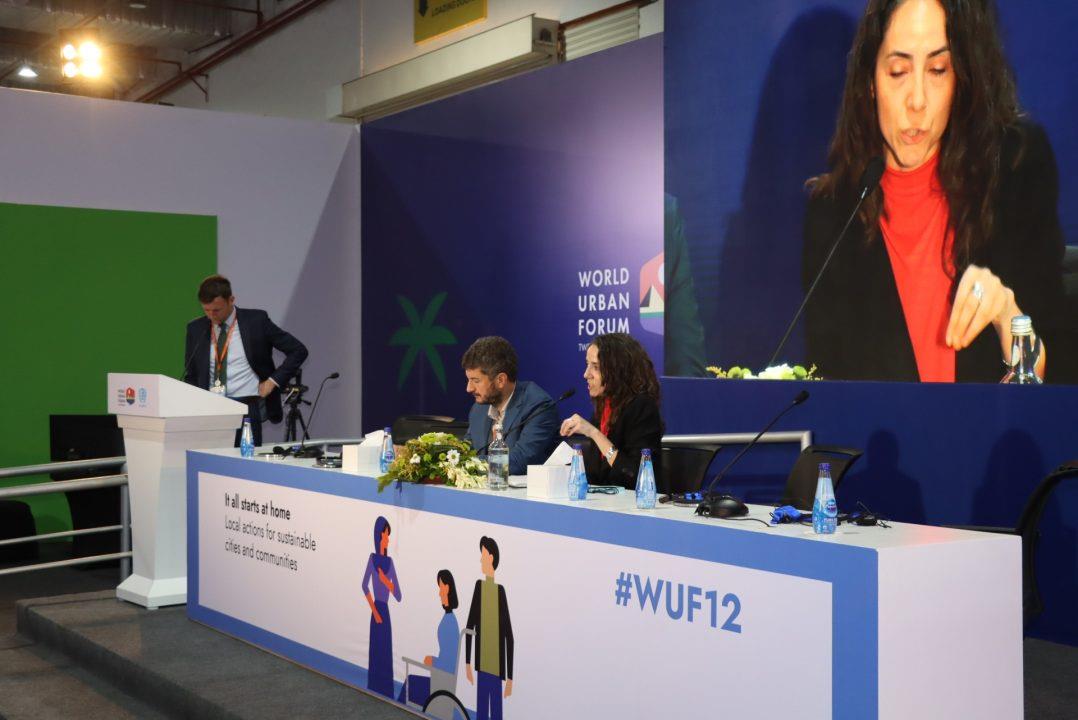
Local Initiatives and Their Impact
Panova highlighted several specific initiatives launched by Egypt to support progress toward achieving the SDGs at the local level. One of the most noteworthy is“Hayah Karima” (Decent Life), a flagship initiative aimed at improving the quality of life in poor villages. This initiative reflects Egypt's commitment to addressing poverty and inequality, ensuring that the benefits of development reach all segments of society.
Additionally, she pointed out the release of sustainable development localization reports in 2021, which covered all 27 governorates. These reports provide valuable insights into the local implementation of the SDGs and serve as a basis for further action. Furthermore, three voluntary local reviews from the governorates of Beheira, Fayoum, and Port Said were presented at the 2023 High-Level Political Forum, showcasing local efforts and achievements in SDG localization.
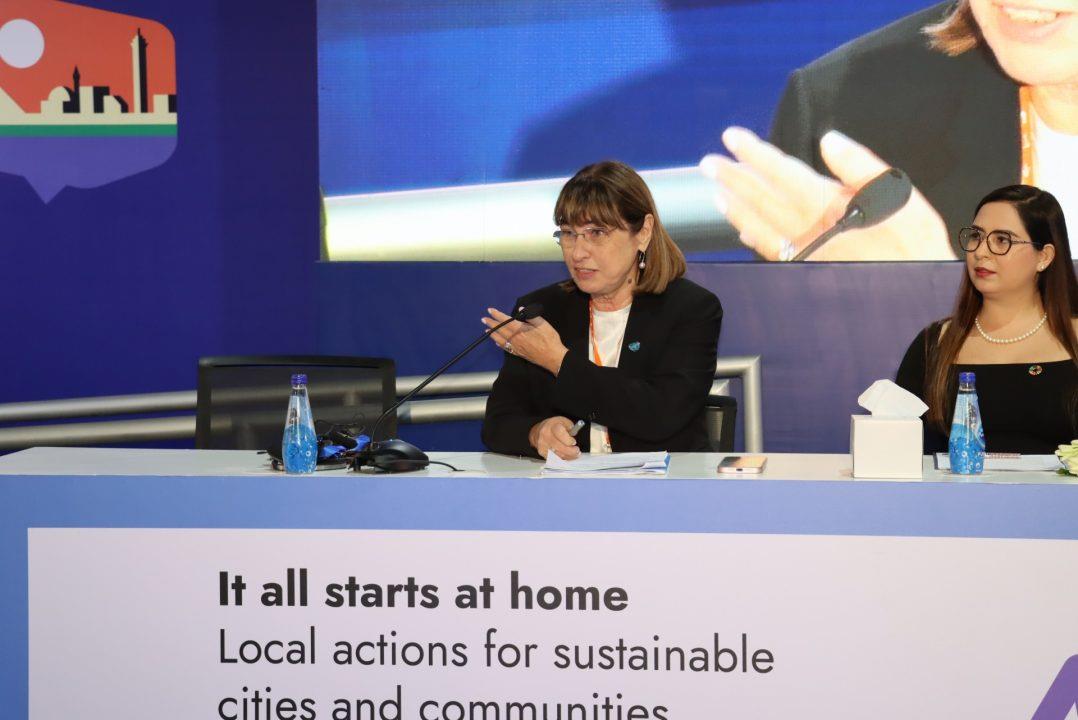
Challenges in SDG Localization
Despite these advancements, Panova acknowledged several challenges facing SDG localization in Egypt. These include disparities in planning and monitoring capacities among governorates, the need to improve collaboration with local stakeholders, and the necessity to enhance the collection, management, and utilization of disaggregated data. Addressing these challenges is essential for ensuring that local initiatives are effective and aligned with national priorities.
A New Joint Program for Local Governance
In response to these challenges, the UN is establishing a new joint program, led by the Ministry of Planning, Economic Development and International Cooperation, in collaboration with three UN agencies-UN-Habitat, UNDP, and UNICEF. This program aims to strengthen local governance by integrating people-centred decision-making processes throughout the policy cycle, including planning, budgeting, and monitoring.
Panova emphasized the significant role that the UN could play in this context, stating that the joint program“can act as a catalyst for further cooperation and investment from the government, UN agencies, development partners, and the private sector.” By fostering collaboration and engagement among all stakeholders, the program aims to create a more inclusive and sustainable approach to local governance.
Engaging Young People in Development
A key component of the new joint program is its focus on engaging young people in various ways. The program will include youth in all capacity-building and participatory planning activities, ensuring their voices are heard in policy dialogues. Panova noted,“We will work with the new Local2030 Cairo Hub to disseminate successful models across Egypt, Africa, and globally.” This commitment to youth engagement reflects a recognition of the vital role that young people play in shaping the future of sustainable development.
Global Partnerships and Best Practices
The event brought together a diverse range of partners, with speakers highlighting the role of the UN Joint SDG Fund and the Local2030 Coalition in supporting national, regional, and local governments in overcoming financing challenges and advancing the SDGs at the local level. By showcasing successful world initiatives, the forum provided a platform for sharing best practices and lessons learned, fostering collaboration among nations.
The UN Joint SDG Fund is the UN's leading global fund dedicated to mobilizing the UN Development System and catalyzing policy and financing transformations to accelerate SDG efforts. With nearly $79 million invested in supporting SDG localization actions, the Fund has initiated projects that work with local and regional stakeholders to develop innovative policy solutions and financing mechanisms. This investment underscores the UN's commitment to fostering sustainable development at every level.
The discussions at WUF12 highlighted the urgent need for enhanced collaboration and innovative financing solutions to support the localization of the Sustainable Development Goals. The“ONE UN Roundtable” provided a critical platform for stakeholders to share insights and strategies for bridging financial gaps in SDG implementation, while the initiatives presented by Egypt showcased the tangible steps being taken to localize these goals.
As the global community continues to grapple with the challenges of urbanization, inequality, and climate change, the insights and partnerships formed at WUF12 will be essential for driving progress toward the SDGs. By fostering collective action and leveraging resources effectively, the UN and its partners can work towards a more sustainable and equitable future for all. The road ahead will require concerted efforts from governments, international organizations, the private sector, and civil society to ensure that the promises of the SDGs are fulfilled and that no one is left behind.
MENAFN09112024000153011029ID1108868749